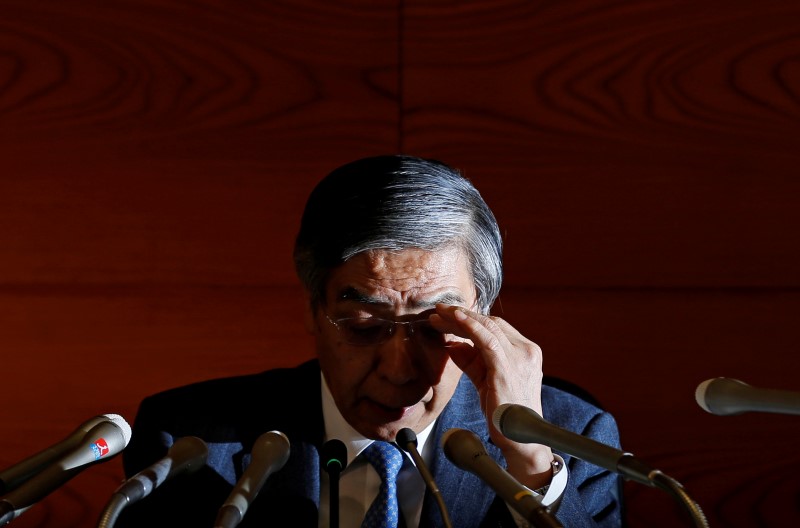By Yoshifumi Takemoto
TOKYO (Reuters) - A comment by Bank of Japan Governor Haruhiko Kuroda ruling out the use of "helicopter money" as monetary stimulus is a reiteration of the central bank chief's usual stance on the issue, a BOJ spokesman said after the remark caused the yen to surge.
"The contents are the same as always," the spokesman told Reuters, referring to Kuroda's remarks in a BBC documentary that there was "no need and no possibility for helicopter money."
The yen was up by 1 percent against the euro in London on the comment, which was taken to mean Kuroda was quashing speculation of a further monetary easing at the BOJ's next policy decision on July 29.
The BOJ spokesman said he could not say when the interview was recorded.
There are various definitions conjured by the metaphor of dropping money from the sky to spur economic growth and stoke inflation. For the BOJ, the idea is usually that the central bank would resort to indefinitely financing rampant fiscal spending through perpetual bonds.
Kuroda said a month ago that helicopter money could not be done under Japan's current legal system, while government and BOJ sources told Reuters last week there was no chance of such a development any time soon.
Prime Minister Shinzo Abe is not pushing the central bank to take such a radical step, the sources said. The BOJ is legally prohibited from directly underwriting government debt, although by gobbling up $760 billion of government bonds a year, it is already essentially monetising Japan's public debt, some experts argue.
Frederic Neumann, an economist at HSBC, said in a note on Thursday that "pretty much everything is on the table" at the coming BOJ meeting.

"Everything, that is, except for outright helicopter money: legally this isn't straightforward, plus officials don't seem to be inclined to step onto the launch pad just yet."